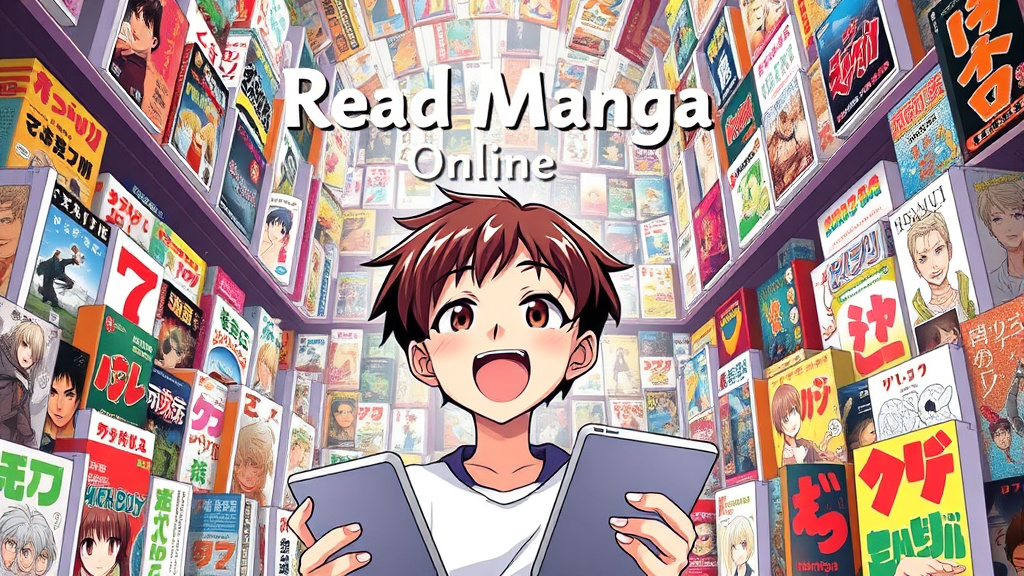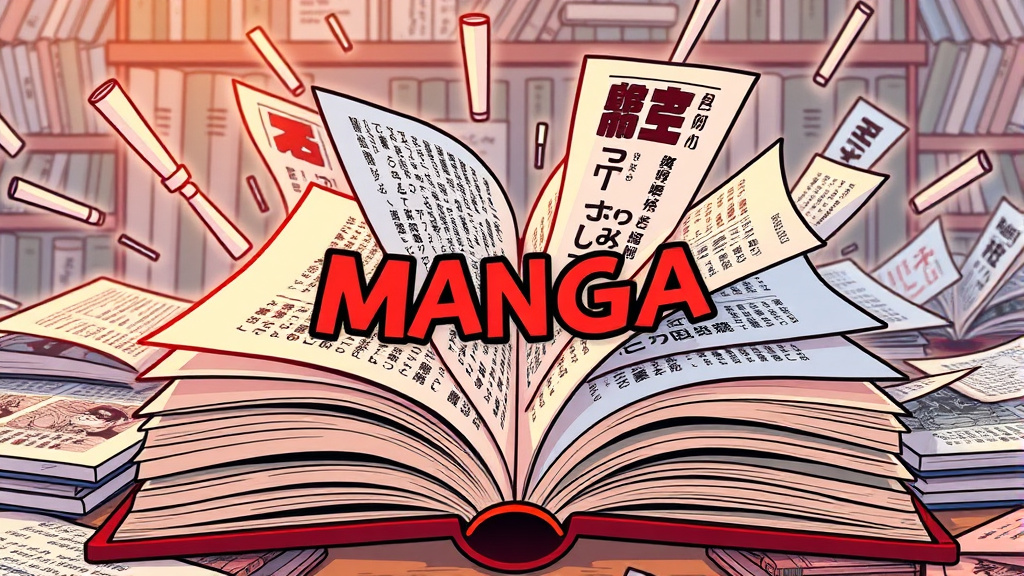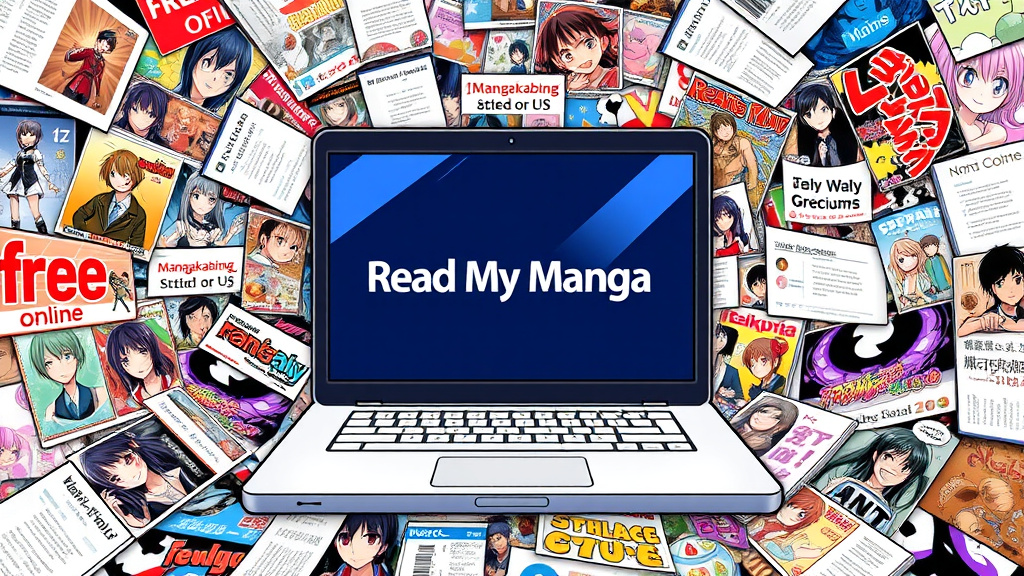In recent years, manhwa online has revolutionized how fans access and enjoy South Korea’s distinctive comic art style. With the advent of digital platforms, the traditional boundaries of publishing have shifted, making manhwa more accessible and diverse than ever before. This article delves into the growth and significance of manhwa online, exploring various platforms, genres, technological shifts, and cultural impacts shaping this vibrant digital landscape.
The Rise of Online Manhwa – A Digital Reading Revolution
The global surge of manhwa online is emblematic of broader shifts toward digital consumption of entertainment media. Unlike traditional print comics, online manhwa benefits from instant availability, customizable reading experiences, and interactive features that deepen reader engagement. This transition reflects a technological revolution where artists and readers are no longer confined by geographical and physical constraints. As a result, a diverse array of genres and innovative storytelling techniques are flourishing within the digital realm, inviting a broader audience and fostering an inclusive community.
Moreover, the rise of manhwa online intersects with the broader digital democratization movement—empowering amateur artists and independent creators to showcase their talents without the overhead of print publishing. This democratization fuels creativity, fosters genre experimentation, and accelerates the dissemination of niche stories that might never reach a traditional publisher. The growing popularity of webtoons and digital manhwa also parallels advances in mobile technology, catering to a generation that expects instant access and on-the-go entertainment, thus making the online platform pivotal in redefining the cultural landscape of comic consumption.
 Hình minh họa: manhwa online – wind breaker manga english
Hình minh họa: manhwa online – wind breaker manga englishWhere to Read Manhwa Online – Top Platforms and Services
Choosing the right platform to enjoy manhwa online can significantly enhance the reading experience. Major sites such as Webtoon, Tapas, and Lezhin Comics dominate the scene, offering extensive collections across genres with user-friendly interfaces. These platforms often feature free chapters, premium options, and regular updates, catering to both casual readers and dedicated fans. Additionally, many platforms incorporate community features like comments, ratings, and fan translations, fostering interactive ecosystems that enhance engagement and loyalty.
Beyond industry giants, smaller or regional platforms are emerging, catering to specific language audiences or niche interests. For example, platforms like Kakaopage and Bomtoon provide diversified content tailored to Korean readers, but with expansion into global markets via translations. The accessibility of manhwa online is also facilitated by apps optimized for smartphones and tablets, enabling seamless on-the-go reading. These dedicated platforms and apps are continuously evolving to deliver high-quality visuals, secure access, and engaging community features, ensuring that manhwa online remains a thriving and accessible medium for all ages.

Exploring the Diverse Genres Available in Online Manhwa
The range of genres available in manhwa online mirrors its rapid growth in popularity, reflecting the broad interests of a global readership. From action-packed fantasy and martial arts to romantic dramas, horror, slice-of-life, and psychological thrillers, online platforms host an eclectic mix of stories that appeal to diverse tastes. The accessibility of manhwa online encourages creators to experiment with unique themes and complex narratives, leading to a rich tapestry of content that challenges stereotypes and explores nuanced cultural issues.
This spectrum of genres also offers opportunities for cross-cultural storytelling and hybrid styles that blend Western influences with traditional Korean storytelling techniques. For instance, some online manhwa delve into existential themes, social commentary, or LGBTQ+ narratives—topics that might be less common in traditional print versions. The immediacy of online publishing facilitates rapid experimentation and iteration, so genres continue to evolve, pushing the boundaries of what is conventionally expected in comic storytelling. As a result, manhwa online is not merely entertainment but also a reflection of shifting societal values and cultural dialogues.
The Benefits of Reading Manhwa Online – Convenience and Accessibility
One of the most compelling advantages of manhwa online is its convenience. Readers have instant access to countless stories at their fingertips, complete with features such as adjustable reading directions, night modes, and multi-language options. Online platforms often host daily or weekly updates, allowing fans to stay engaged with ongoing series without the delays associated with print editions. This constant availability makes manhwa online a flexible and time-efficient way to enjoy stories that suit modern, busy lifestyles.
Furthermore, manhwa online democratizes access, breaking down barriers for readers worldwide. Whether living in metropolitan cities or remote rural areas, fans can connect with a global community of enthusiasts and access the latest releases without waiting for physical copies or risking high shipping costs. Interactive features such as commenting, rating, and sharing enhance communal interactions, fostering a sense of belonging and cultural exchange. This inclusivity ensures that diverse voices and stories find their audience, helping the medium grow in both popularity and cultural significance.
Manhwa Online vs. Traditional Print – A Comparative Analysis
The transition from traditional print manhwa to manhwa online has sparked an ongoing debate about the differences in experience, quality, and cultural value. Digital platforms offer unparalleled accessibility and often feature faster publication cycles, making new chapters available within hours of completion. Conversely, print versions are valued for their tactile experience, collectible nature, and sometimes higher perceived artistic quality due to physical presentation and printing standards.
However, the digital medium enables innovative storytelling techniques, such as animated page transitions, sound effects, and interactive elements that cannot be replicated in print. While physical copies hold nostalgic and collector value, manhwa online allows for broader dissemination, rapid updates, and community interaction, fundamentally transforming readership dynamics. Ultimately, both formats coexist, with digital manhwa online expanding the reach and influence of the art form, while print retains its cultural and sentimental significance for enthusiasts who appreciate the tangible aspect.
Understanding the Manhwa Translation Process for Online Readers
The global popularity of manhwa online owes much to quality translations that bridge linguistic and cultural gaps. The translation process involves multiple stages: initial translation, localization, editing, and typesetting. Often carried out by dedicated fan groups or professional teams, these steps require not only linguistic skills but also cultural sensitivity. The goal is to preserve the original tone, humor, and nuance while making the story accessible to readers unfamiliar with Korean language and customs.
While official translations are increasingly prevalent, the fan translation community plays a vital role in the early dissemination of manhwa online content, especially before official versions are released internationally. However, this grey area of unofficial translations raises questions about copyright and intellectual property rights. As the industry matures, there’s a growing emphasis on fair licensing agreements that respect creator rights while expanding global access. Understanding the translation process reveals the collaborative effort behind manhwa online, balancing artistic integrity with cultural accessibility.
The Impact of Online Platforms on Manhwa Creators and the Industry
Online platforms have significantly altered the landscape for manhwa creators. Previously limited by print costs and traditional publishing channels, artists now have direct access to an international audience, enabling more spontaneous and experimental storytelling. Many creators monetize their work through ads, paid chapters, and patronage, fostering a new economic model that supports independent artists and small studios.
From an industry perspective, these platforms also encourage innovation and diversity. The availability of data analytics helps creators understand what resonates with audiences, influencing content trends and stylistic choices. However, this shift also brings challenges, such as copyright infringement, content saturation, and pressure to produce rapidly. Despite these hurdles, the rise of manhwa online has empowered creators, democratized content production, and contributed to a vibrant, continually evolving ecosystem that pushes cultural boundaries.
Navigating the Legal Landscape of Reading Manhwa Online – Copyright and Distribution
The proliferation of manhwa online necessitates a clear understanding of copyright laws and ethical consumption. While many platforms operate legally, offering licensed content and paying royalties to creators, there’s a significant segment of unofficial sites and pirated sources. These unauthorized platforms pose risks of legal action, poor-quality translations, and potential malware infections for users.
Respect for intellectual property is vital for the long-term health of the manhwa industry. Supporting official sources ensures creators are compensated and incentivized to produce quality content. Readers can do this by subscribing to paid platforms, verifying the legitimacy of a site, and avoiding piracy. As the industry matures globally, legal frameworks must adapt to distinguish between legitimate access and copyright infringement, fostering a sustainable environment where creators and fans thrive in harmony.
Popular Online Manhwa Series – Recommendations for New Readers
For newcomers eager to explore manhwa online, there’s a wealth of compelling series across genres. Titles like Solo Leveling—an action-fantasy saga—and The Boxer, which explores mental resilience through boxing, exemplify the depth and variety of online manhwa. Romance series such as Lore Olympus provide contemporary storytelling with artistic flair, while horror titles like Bastard evoke intense emotional responses.
Readers should start with well-rated, trending stories that match their interests to ensure an engaging experience. Online platforms often feature curated lists and recommendations based on reading history, making discovery easier. As you delve into these series, you’ll understand the evolving artistic styles, storytelling techniques, and cultural nuances that make manhwa online such a dynamic and captivating medium.
The Future of Manhwa Consumption – Trends in Online Distribution and Accessibility
The future of manhwa online appears promising, with technological developments promising even greater accessibility and innovation. Virtual reality (VR) and augmented reality (AR) integrations could bring immersive experiences to digital comics, transforming static panels into interactive worlds. Additionally, AI-driven translation tools may facilitate faster, higher-quality localization, expanding global reach.
Another significant trend is mobile optimization—ensuring that manhwa online remains easily accessible across devices, fostering on-the-go consumption that aligns with modern lifestyles. Furthermore, blockchain technology might introduce more transparent copyright management and secure distribution channels. As societal attitudes increasingly embrace digital media, manhwa online will likely continue growing as a culturally influential and commercially vital form of entertainment, connecting creators and fans across borders in real time.
Conclusion
The burgeoning landscape of manhwa online exemplifies how digital technologies have transformed the creation, distribution, and consumption of comics worldwide. It has democratized access to diverse genres, empowered creators, and fostered vibrant, interactive communities—features that traditional print formats could scarcely offer. As platforms continue to evolve with innovations like VR and AI, and as legal and ethical considerations adapt to these changes, the future of manhwa online promises even greater accessibility, creativity, and cultural exchange. Ultimately, this digital revolution not only reshapes how stories are told and enjoyed but also deepens the global appreciation for the rich artistic and narrative traditions of Korean manhwa, making it an enduring and expanding cultural phenomenon.




















